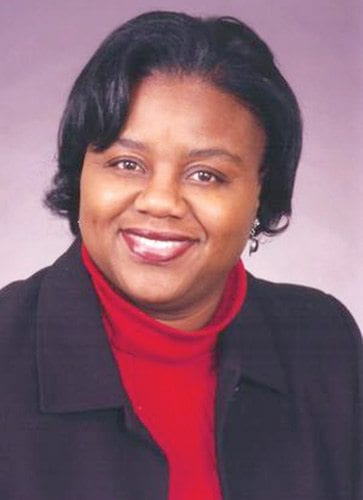
Children of Haitian descent are increasingly being barred from access to primary and secondary education in the Dominican Republic in the wake of a controversial court decision to strip Dominicans of Haitian origin of their citizenship, according to a new report.
The findings, published in April by the Georgetown University Law Center Human Rights Institute, show that children of Haitian ancestry are being prevented from attending school because they don’t have proper documentation. Many Dominican-Haitians say that their official documents, such as birth certificates and national identification cards, have been refused or seized by the government, which makes enrollment in school difficult, even though the Dominican constitution guarantees the right to education for all.
According to the report, this lack of documentation causes problems for students of Haitian descent at every stage of their education, from enrolling in classes, to taking national exams and matriculating into university. Along the way, many youth report being harassed for not having their papers and being forced to repeat grades when transferring schools.
“Regardless of the history and politics involved in the debate over nationality in the Dominican Republic,” says Elizabeth Gibson, one of the authors of the report, “our research shows that it has a negative impact on children. This isn’t just an intellectual debate over nationality law.”
Since the two nations share the Caribbean island of Hispaniola, migration from Haiti to the Dominican Republic has long taken place, particularly in the early 20th century, as large numbers of Haitian laborers traveled to work in the Dominican’s booming sugarcane industry. According to Dominican law at the time, anyone born in the country would automatically receive citizenship — unless their parents were in the country for fewer than 10 days — so the children and grandchildren of these Haitian immigrants became Dominican.
However, in 2004 and 2010 — when the Dominican Republic took in huge numbers of refugees after the devastating earthquake in Haiti — the government tightened the requirements on who qualifies for Dominican citizenship, leaving many of Haitian descent stateless. And in September of 2013, the Constitutional Court ruled that these stricter definitions of nationality apply retroactively to all people born in the country after 1929 — effectively revoking citizenship from hundreds of thousands of residents.
“Instead of saying, ‘Starting now, we’re changing what our nationality law is,’ the ruling says, ‘This is how it always was, so it was just a mistake if you were previously granted citizenship, or your grandfather was granted citizenship,’” says Gibson, “‘so that grandfather and all of his descendants — we’re stripping them of their citizenship.’”
Marie St. Fleur, a former state representative and the first Haitian American to hold public office in Massachusetts, calls the Constitutional Court’s recent decision “unfair and unjust.” “In what other country would this be acceptable?” she says. “Imagine if America said that everyone who came in after a certain period of time — whether they’re American or not — must now be stripped of their rights.”
St. Fleur says that Dominicans of Haitian descent are now “trapped” — their Dominican citizenship has been revoked, but they don’t qualify for Haitian citizenship, either. “They can’t even go to Haiti because they don’t have papers to travel there,” she says.
In addition to restrictions on education, she explains that doctors, engineers and others are also having difficulty obtaining or renewing their professional licenses. “The middle class is now being impacted,” she says. “Haitian migrant workers were the first, but now it’s everyone.”
The Dominican government, however, says that these policies are intended to “give clarity to an outdated [immigration] system.”
“We seek to tackle the complex issue of immigration reform by implementing a policy for registering both national and immigrant citizens that respects each person’s contribution to Dominican society,” says Anibal de Castro, the Dominican Republic’s ambassador to the United States.
On the issue of education, de Castro stresses that the Dominican Constitution “guarantees that all children have access to a free education, regardless of their migratory status,” and that government spending on education is now at an all-time high. While the Georgetown researchers don’t dispute this point, they say there’s a disconnect between this ideal and what’s happening on the ground, precisely because of the challenges statelessness presents.
“The inability to access documentation and statelessness impacts people’s access to other rights as well,” says Gibson. “Education is an enabling right, and if you don’t have access to education, that affects so many other aspects of your life and your ability to participate fully in society and improve your family situation. There are so many symptoms of statelessness, and those in turn create a chain reaction that results in a perpetuating cycle that becomes multi-generational.”
While St. Fleur is encouraged by the number of Dominicans in the United States standing up to these discriminatory practices in their own country, she says the U.S. government has not done nearly enough. “It’s not a focus for the secretary of state or the president at this time,” she says.
Without government action, St. Fleur says that ordinary people must keep the issue alive.
“The more it recedes off the front pages of the newspapers and nobody speaks about it, the more these folks are forgotten,” she says. “As a human community, we need to continue to speak up and say that the actions of the Dominican Constitutional Court violates the basic civil and human rights that the United Nations have embraced and that we in this country hold as a basic principle of a free and democratic society.”


![Banner [Virtual] Art Gallery](https://baystatebanner.com/wp-content/uploads/2024/04/Cagen-Luse_Men-at-store-e1713991226112-150x150.jpg)



